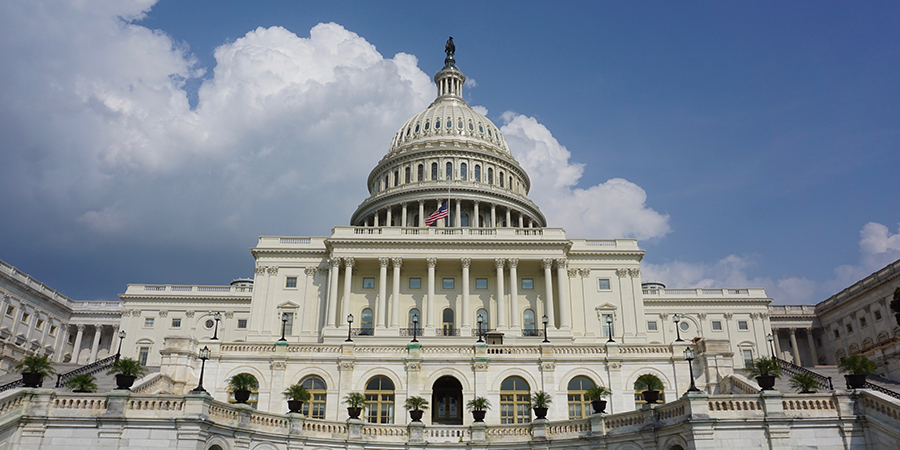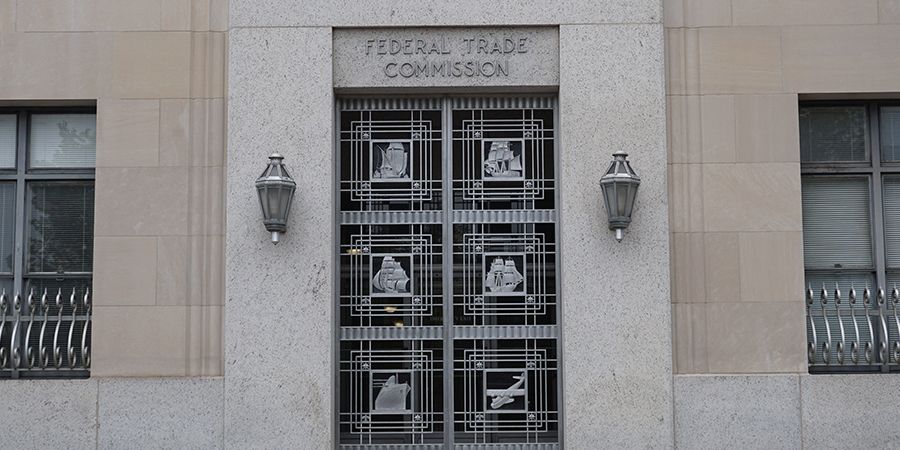Answering Meta, US FTC says it didn't exceed its authority in seeking to rewrite 2020 privacy deal (COPY) (COPY)

Answering Meta, US FTC says it didn't exceed its authority in seeking to rewrite 2020 privacy deal
Read on for the story from MLex®, or start your 14-day free trial now to access our Data Privacy & Security reporting in real time.
21 August 2023
Mike Swift, Chief Global Digital Risk Correspondent
The US Federal Trade Commission again defended its legal authority to enforce prohibitions against deceptive and unfair business practices, as the agency seeks to nullify Meta Platforms’ bid to restrain the FTC from reopening its 2020 privacy settlement with the social media giant.
As the FTC did last year in litigation against Kochava, an Idaho data broker, the agency has filed a detailed response with a US judge that defends its broad legal authority to protect consumer privacy, as it seeks to restructure and expand an existing settlement with Meta because of new conduct the FTC says “violated the 2020 Administrative Order and jeopardized consumers’ privacy.”
By agreeing to that $5 billion settlement, Meta “did not buy itself out of the FTC’s statutory enforcement scheme,” Department of Justice lawyers defending the FTC told a federal judge in Washington, DC, in a new court filing that details the agency’s defenses in advance of a hearing this fall. “The Stipulated Order did not curtail the Commission’s ability to exercise its statutory authority to protect the public from additional unfair and deceptive conduct by Meta. Nor did it require all future Commission proceedings relating to its 2020 Administrative Order to occur before this Court.”
Meta in late May moved in US District Court in DC to block the FTC from using an administrative proceeding to impose a sweeping penalty — restricting the social media giant from monetizing the personal data of minors on its Facebook, Instagram, WhatsApp and Oculus platforms. Meta told US District Judge Timothy Kelly in that filing that only a federal judge in an Article III federal court — not the FTC through an administrative action — can enforce or modify a settlement such as the 2020 consent order.
In a detailed, 56-page response to Meta’s bid in recent days, the government deployed an extensive list of arguments why Kelly should deny Meta’s bid. Those include that Meta’s complaint is not yet ripe because no changes have been made to the settlement, and that Meta waived its right to challenge the FTC’s jurisdictional authority when it agreed to the $5 billion settlement in 2019, a deal Kelly approved in 2020.
“Meta could have contended in 2012 or 2019 that the Commission is unconstitutionally structured and lacks authority to enter or modify the administrative order pertaining to Meta,” the government told Kelly, referring to the FTC’s two earlier privacy settlements with the company. “Instead, Meta knowingly and voluntarily abandoned those challenges, admitting the Commission has jurisdiction to enter administrative orders. By repeatedly intentionally relinquishing its rights, Meta waived its challenges to the FTC’s authority.”
The meat of the FTC’s counter, however, is to defend its own authority under federal law and the US Constitution to protect the public good as “an expert agency” that received that authority from Congress. Those are enforcement powers the agency can employ without having to rely on a federal court, the new filing argues.
To win that argument, however, the FTC may have to convince Kelly that a fresh Supreme Court decision over the constitutionality of administrative adjudication processes used by the FTC and other federal agencies is limited to broad claims about the structure or existence of an agency.
Roofing and privacy
In its new filing, the government likened the FTC’s authority to protect consumer privacy to another federal agency’s ability to enforce occupational safety standards on building contractors, without having to resort to a court trial for every safety violation.
Relying on a 1977 US Supreme Court decision involving the US Department of Labor’s authority to protect the safe working conditions of roofing contractors under the Occupational Safety and Health Act, the government said the FTC has the “sovereign capacity” to protect “public rights” created by Congress — in this case, the veracity and fairness of a company’s privacy disclosures and practices as enforced by Section 5 of the FTC Act.
“Like the Department of Labor when it enforces OSHA, the FTC, when it enforces the FTC Act, acts ‘in its sovereign capacity under an otherwise valid statute creating enforceable public rights,’” the government said, quoting the Justices’ 1977 decision in Atlas Roofing Co. v. Occupational Safety and Health Review Commission.
“Such cases are distinguishable from ‘[w]holly private tort contract, and property cases,’ which implicate the Seventh Amendment’s right to a jury trial. Indeed, the Fifth Circuit in Atlas Roofing — whose decision was affirmed by the Supreme Court — specifically identified the FTC’s proceedings when holding that they could be conducted without a jury trial because they involved public rights,” the government told Kelly in the Aug. 16 filing.
But like Kochava in its counter to the FTC’s suit alleging the data broker’s sale of location data was an unfair business practices, Meta has invoked the Supreme Court’s decision this year in litigation filed against the FTC by body-camera maker Axon Enterprise.
In that unanimous decision in April, the Justices ruled that companies or individuals can challenge the constitutionality of the use of administrative adjudication processes by agencies such as the FTC or US Securities and Exchange Commission before proceedings occur on the merits of a case.
In opposing Meta’s use of the Axon decision, the government’s thrust is to argue that it was tightly focused on “a limited subset of claims” that involve “the structure or very existence” of the FTC and other federal agencies.
“The [Supreme] Court was emphatic that it was not expressing ‘newfound enthusiasm’ for immediate judicial review,” the government told Kelly in the new filing, quoting the Axon opinion. “Yet, hoping to expand Axon beyond its limits, Meta now seeks to raise a host of challenges, not just to the FTC’s structure or existence (‘structural claims’), but also regarding whether the ‘circumstances’ surrounding the show cause hearing can justify the ‘scope of the changes’ proposed by the Commission.”
Meta’s May 31 filing impugned the fairness and transparency of the action the FTC initiated May 3. The 2020 settlement required Meta to build a significant and costly internal compliance system, and Meta said it “invested billions of dollars in designing and implementing a comprehensive Privacy Program, and facilitating rigorous oversight” by an independent privacy assessor named to review its privacy practices.
Part of the compliance process includes regular reports by the assessor that go to the FTC. After responding last year to the FTC’s questions about the “gaps and weaknesses” in an initial 2021 finding first reported by MLex following a Freedom of Information Act request, Meta said in the May 31 filing that it “did not hear further from the FTC concerning these issues for nearly a year.”
Then, earlier this year, Meta said it was blindsided by the FTC’s move to make more than 800 changes that would revamp the 2020 settlement order, including the sweeping limits on monetization of the data of younger users.
Meta will get another chance to reply to the FTC’s argument that it need not go back to federal court to reopen the 2020 settlement. Meta’s final brief to Kelly is due in September. The judge has scheduled a hearing Oct. 17 in Washington, when Kelly’s view of the two sides’ argument is likely to be revealed.
For full access to our Data Privacy & Security news and analysis, start your free trial today.
More from MLex
Insight: Kochava seeks sanctions against US FTC lawyers
Insight: Republicans more comfortable including private right of action in US privacy legislation, staffers say
Insight: Montana TikTok ban about data privacy, not speech, state attorney general tells US court
Insight: AI regulation draws contrasting views from US Democrats, Republicans
Insight: US FTC ‘likely violated’ federal recordkeeping law, congressional Republicans say
Comment: Japan mulling copyright-law changes amid growing concerns over AI
Comment: Meta’s shift to consent for behavorial ads in the EU shows power of the regulatory grinder
Insight: Global drugmakers face need to localize data amid regulatory headwinds in China
Insight: Collecting data for biometric recognition? Beware the privacy implications, UK guidance warns
An independent news agency, MLex® provides exclusive market insight and real-time reporting on regulatory risk from 15 bureaus across the globe.
See for yourself why we're trusted by the world’s leading law firms, corporations, consultancies and regulators.











